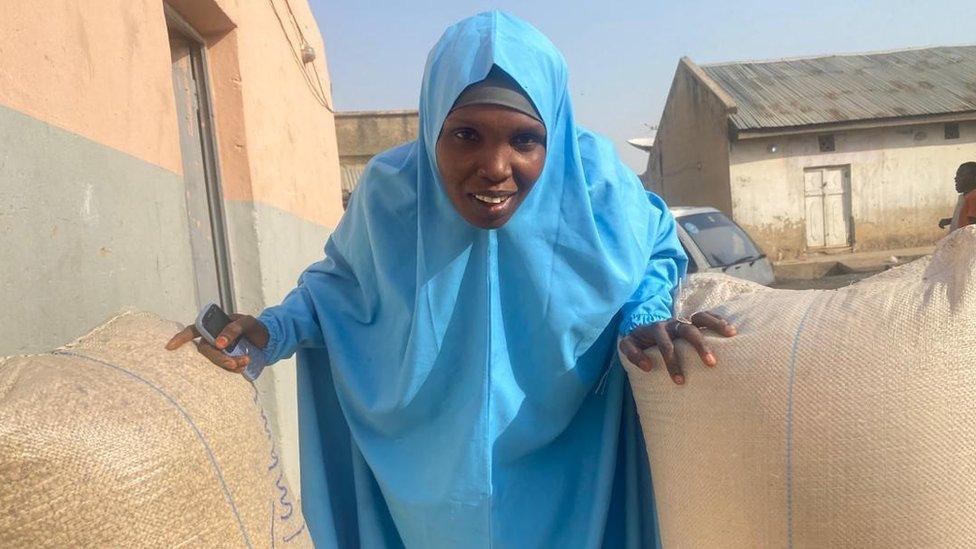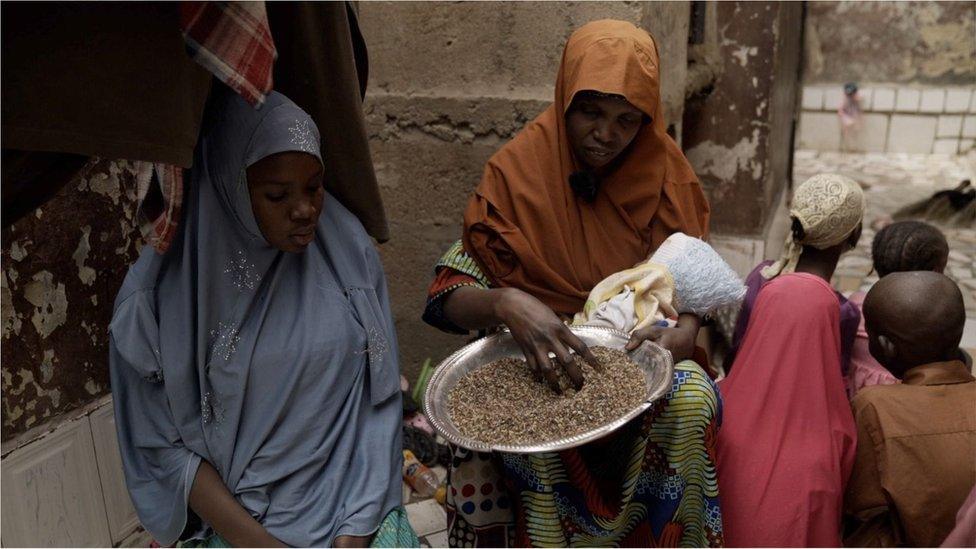Nigerian economy: Generosity of strangers stuns struggling mother
- Published

Strangers have been dropping bags of food off at Shamsiyya Abubakar's house
Shamsiyya Abubakar had begun to lose hope - Nigeria's grave economic downturn meant she was scrambling each day to feed her family of nine.
The 32-year-old had resorted to cooking afafata - the rice grain millers normally throw away at the end of the sorting process because it is too tough.
Ms Abubakar, mother to a newborn baby, told BBC Pidgin that her struggles had taken her mind to dark places.
"Sometimes I say to myself: 'Instead of living like this, wouldn't it be better to be dead?'" she said in the Hausa language interview, which was widely shared in Nigeria.
But since it was published on Tuesday, strangers have been filing in and out of her house with offers of food and money.
This unexpected response has "changed her life", she said when the BBC caught up with her for a second time.
"I have never seen such huge amounts of money in my life... I am really grateful.
"I got cash from several people, while others brought bags of good rice and maize, so we have enough good food to eat now," she added.
Her husband Haruna Abubakar also expressed delight at their change of fortune.
"On the day of the BBC video, we had nothing to eat, I struggled to get them 500 naira (£0.25; $0.32) to buy cups of rice," he said.
"Today, I am a happy man as our lives has changed and we have enough to eat."

A video of Ms Abubakar telling the BBC about her struggle sparked an outpouring of help
Sani Isah, one of those who took supplies for the family, said Ms Abubakar's story made him cry. Mr Isah added that he felt compelled to help with the little he had.
"I think her case is a shame to our leaders, I actually wept after watching her video. How can someone pray for death instead of wanting to live just because of food?" he asked.
"I pray that others in her type of situation will also get the help they need that will change their lives."
Nigeria is currently experiencing its worst economic crisis in a generation, which has led to widespread hardship and anger.
On Tuesday, thousands took to the streets in a nationwide protest against the government's handling of the economy.
The steep price of food has been a major source of frustration.
Rice, a staple in Nigeria, has more than doubled in cost over the past year. Ms Abubakar is far from alone in turning to the broken, dirty and tough afafata grains - its relatively low price has helped many struggling families in the north survive. Several others have been forced to go hungry or ration the food they have.
Ms Abubakar feels that thanks to the kindness of strangers, she can now look forward to the future.
She told the BBC that in order to sustain her family in the long-run, she wants to start a business with some of the food she has received.